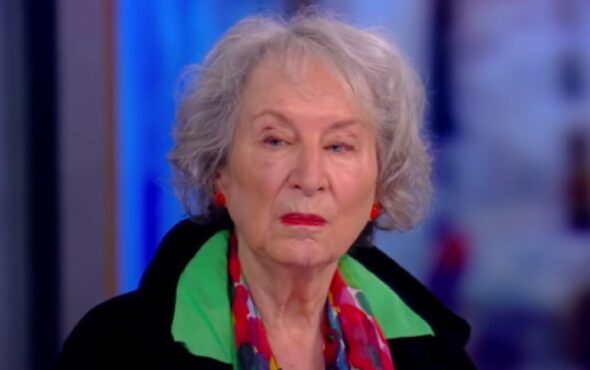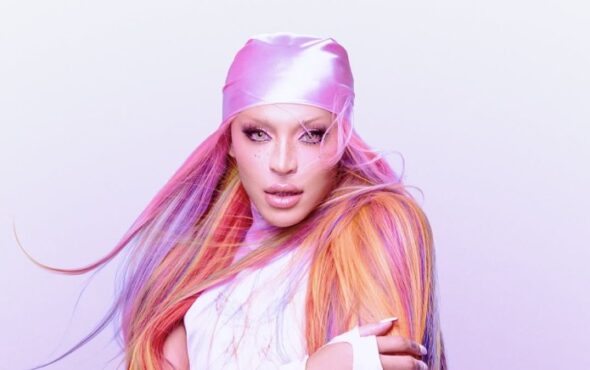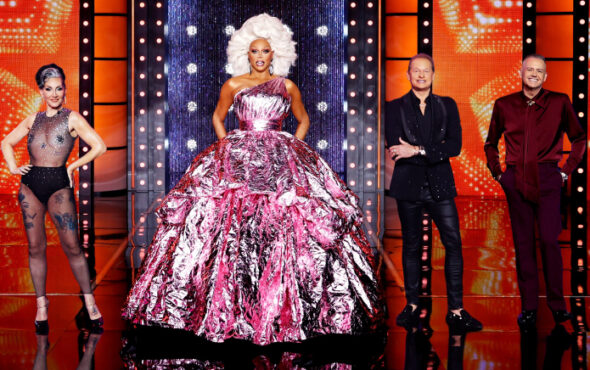
Margaret Atwood is facing backlash after sharing an article questioning why we can apparently no longer say the word “woman”.
On 19 October, the Handmaid’s Tale author shared an article titled “Why can’t we say ‘woman’ anymore?” to Twitter.
The writer of the opinion piece questions trans activism and appears to view it as a direct threat to women, with the main focus being that the author thinks the word “woman” is no longer allowed to be said.
In the wake of posting it on social media, Atwood faced instant backlash from her followers, with one saying they are “disappointed” she would share something like this.
“I’m disappointed you shared this because it’s factually untrue,” journalist Amanda Jetté Knox responded. “We can still say ‘woman’ & we can also say ‘people’ when it makes sense to use more inclusive language. I’m nonbinary. I also menstruate and gave birth to 3 kids. Saying ‘people with periods’ includes women AND me.”
Katie Mack, an author, urged Atwood to remember that inclusivity is “not an attack on womanhood”.
She said: “No one is banning the word “woman.” Many organizations are — rightly — opting for precise language when talking about things that have to do with biological traits rather than gender identity.
“It’s not an attack on womanhood to NOT equate gender with specific biology.”
Abbie Karlish, a fantasy writer, emphasised that the term “women” is often used in situations that make it “outright exclusionary.”
“You can say woman or women or ladies or girls whenever and however you want. We’re just also recognizing that, when discussing repro rights, biology, and many other things, saying “women” is often inaccurate or outright exclusionary,” she wrote.
In response to the criticism Atwood received for apparently supporting the writer’s views, she urged her followers to read the article as the person behind it is “not a Terf.”
Why can’t we say ‘woman’ anymore? https://t.co/ghcQDJgxWE via @torontostar
— Margaret E Atwood (@MargaretAtwood) October 19, 2021
The 81-year-old’s apparent stance on this has confused some fans given the fact she recently signed an open letter advocating for trans rights.
In late-2020, over 1,200 signatories including Atwood, Stephen King and Roxane Gay were a few names showing their support to trans and non-binary communities of the US and Canada.
“This is a message of love and solidarity for the trans and non-binary community,” the letter reads. “Culture is, and should always be, at the forefront of societal change, and as writers, editors, agents, journalists, and publishing professionals, we recognise the vital role our industry has in advancing and supporting the wellbeing and rights of trans and non-binary people.
“We stand with you, we hear you, we see you, we accept you, we love you. The world is better for having you in it. Non-binary lives are valid, trans women are women, trans men are men, trans rights are human rights. From members of the UK and Irish publishing community.”
Atwood also joined a list of writers, actors and directors who penned a letter protesting Poland’s treatment of the LGBTQ+ community – making her latest tweets all the more confusing.
Here’s how other people reacted to Atwood’s tweets:
No one is banning the word “woman.” Many organizations are — rightly — opting for precise language when talking about things that have to do with biological traits rather than gender identity. It’s not an attack on womanhood to NOT equate gender with specific biology.
— Katie Mack (@AstroKatie) October 19, 2021
We can say women. And we can say people when that’s more accurate and inclusive. Women are people.
— used to like it here (@Sitzkrieger) October 19, 2021
https://twitter.com/MavenOfMayhem/status/1450440313680453638?s=20
good news, we still can! big fan of your fiction on the dangers of enforcing extremely rigid bio-essentialist ideas about gender btw
— michael wave (@SzMarsupial) October 19, 2021
Please don't give aid and comfort to transphobes.
— melico (@melico24) October 19, 2021
What??? You can say woman AND you can also say trans man and non-binary person, or if you want to include all in one word you can say pregnant person. Including more people is NOT deleting anyone.
— nash (@olivernashbb) October 19, 2021
We CAN say woman.
This article is bewailing the fact that sometimes people take care to be precise with their language when speaking about gynaecological issues, as a mark of courtesy to those people who DO NOT identify as women but DO have cervixes/whatever is being discussed. pic.twitter.com/wouir6aiE7
— Fly🪶 (@flockofwords) October 19, 2021
'woman' is used 8 times in this very article, and 'women' 12. I'm not entirely convinced the premise here is corect. pic.twitter.com/Ptb71L3rqY
— Randeep (@randeep_93) October 19, 2021



